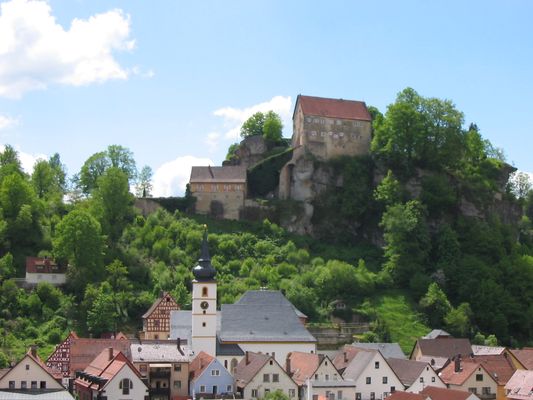A Bavarian town known for its annual Wagner opera festival, 18th-century baroque theater, and Margravial Opera House - a UNESCO site. Home to traditional Franconian cuisine.
Bayreuth, a city in northern Bavaria, is known for its 18th-century performing arts venues. You can watch Wagner's operas in the acoustically innovative Festspielhaus, explore the wooden interior of the UNESCO-listed Margravial Opera House, walk through the fountains and temples of the Eremitage park, or taste local wheat beers and dark lagers in centuries-old breweries.
The Wagner Festival Experience
Each July and August, music fans gather at the Festspielhaus for the annual Wagner Festival. Richard Wagner designed this theater in 1872, creating unique acoustic features like the sunken orchestra pit that produces the clear, balanced "Bayreuth sound." You can take 30-minute guided tours between October and June to see the innovative architecture and learn about the theater's acoustic design.
Inside the Margravial Opera House
The Margravial Opera House dates from 1748 and contains a completely wooden interior decorated with intricate carvings and hand-painted canvas. A major restoration completed in 2018 revealed the original stage machinery and baroque theater technology. Daily guided tours run every hour from 9 AM to 4 PM, showing you the 18th-century stage mechanisms and explaining how performers used them.
Beer Culture in Upper Franconia
One brewery for every 3,000 residents makes this area Germany's most brewery-dense region. At Maisel's Beer Adventure World, guided tours show you the copper brewing kettles and fermentation tanks in their 19th-century building. The Bayreuther Catacombs tunnel system runs beneath the streets, where you can see the cold storage cellars where brewers aged their beer. Local beer gardens serve wheat beers, dark lagers, and smoked beers alongside regional dishes like Schäuferla (pork shoulder).
Parks and Historical Gardens
The 50-hectare Eremitage park includes the Old Palace, Sun Temple, and artificial ruins from the 1700s. Walking paths lead through formal gardens with geometric flower beds, water features, and wooded areas. In the city center, the New Palace's court garden maintains its 18th-century design with symmetrical flower arrangements and baroque fountains. Both gardens open daily from sunrise to sunset.
Getting Around Bayreuth
Direct trains run hourly between Bayreuth and Nuremberg (1.5 hours). The city's bus network operates every 20 minutes on weekdays between the center and residential areas. Most attractions in the historic center are within a 15-20 minute walk from each other. From Nuremberg Airport, 85 kilometers away, you can reach Bayreuth by direct bus or train connections running every two hours.



















